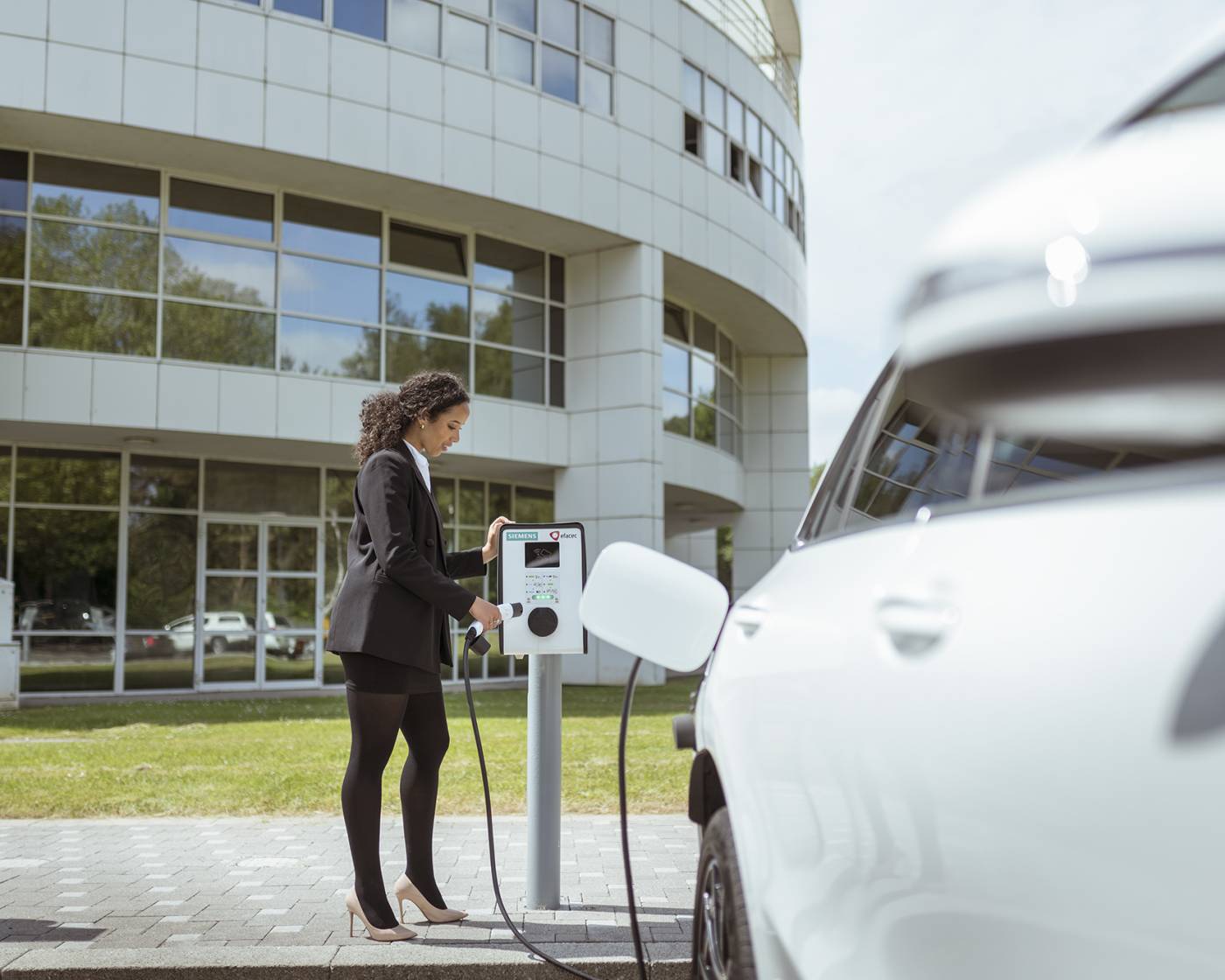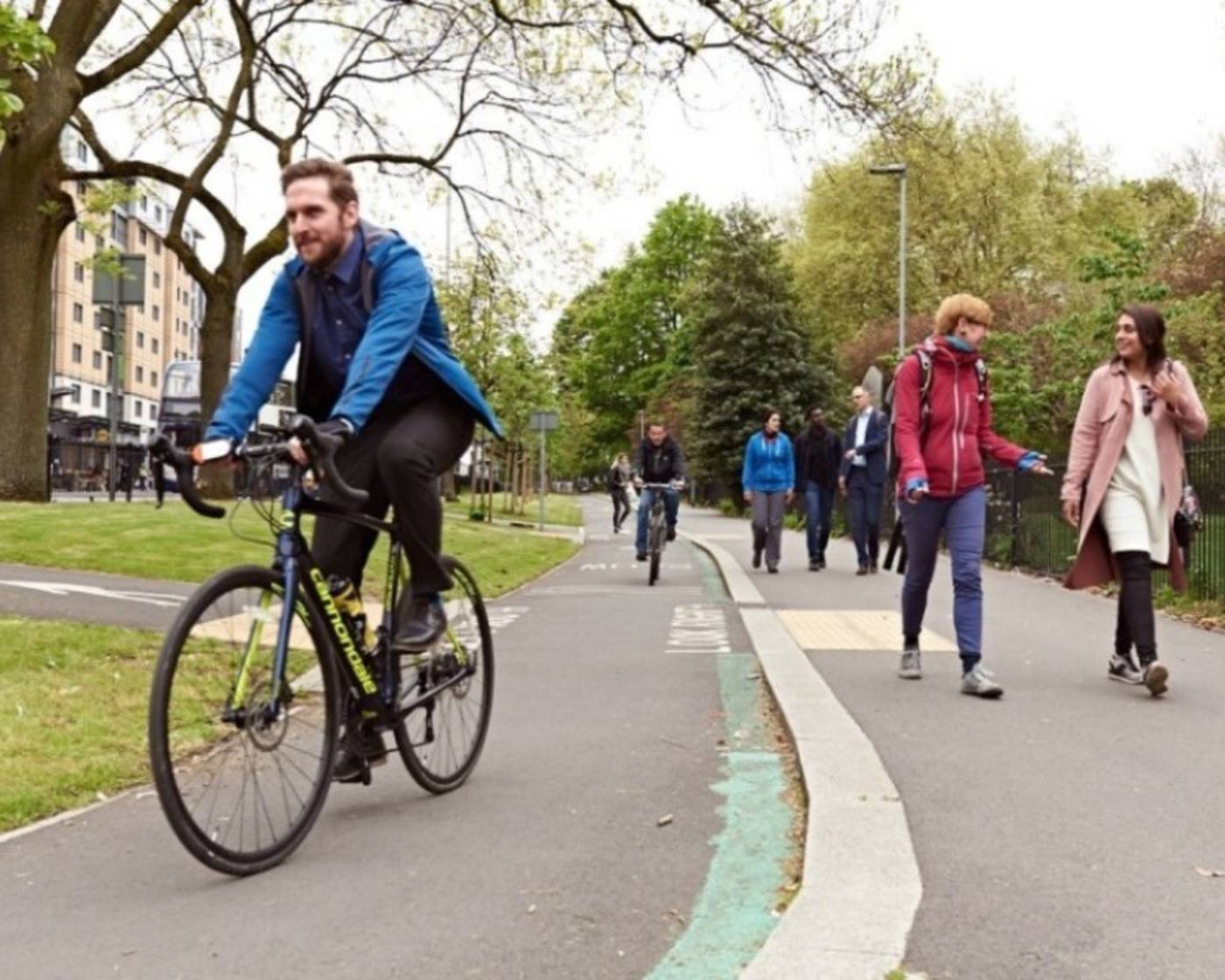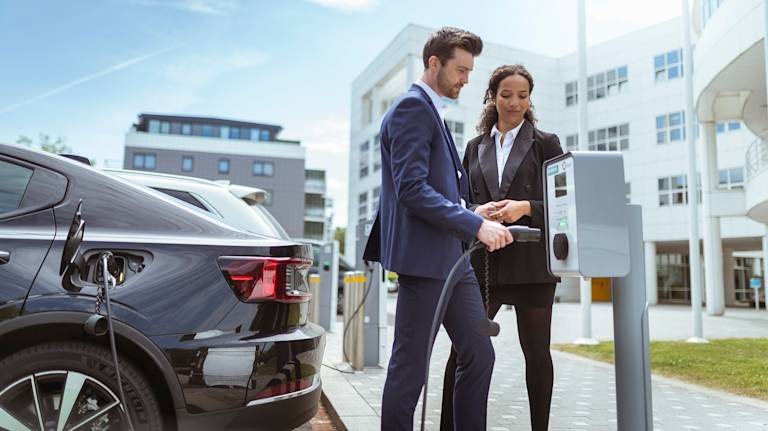
Is EV for me? Cars
If you need to own a car, an electric vehicle (EV) could make sense financially and environmentally. But of course we don't want you to make a bad investment. It's too important. So, should you go for it?
From personal contract purchase (PCP) to personal loan, and personal car leasing (PCH) to buying outright, there are many ways to ‘own’ a car. Depending on how you finance it, and how many miles you drive, changing to electric could save you money.
But, of course, you’re the best judge of whether it’s right for you. Here are some quick points to help.
It can work out as little as 4p per mile to run an electric car over three years.
An average diesel car costs around £1,300 in fuel per year to drive 10,000 miles. The cost of electricity for a similar EV is about £400 – a £900 saving in a year.
If your house has a garage or driveway, overnight charging will save you the most money. It can be as low as 5p per kWh, compared to an average daytime electricity price of around 17p per kWh.
You can get up to £350 from the government to help install a charging point with a Home Charging Grant.
If you make lots of short trips, that’s hard on engines. Electric vehicles are more reliable and cheaper to maintain than diesel and petrol cars.
Read on to find out how much you could save, how to get a charging point installed at home and what grants are available.

So, how do the sums stack up?
You could save £thousands over three years by going electric*
8,000 miles a year – save £2,200
10,000 miles a year – save £2,800
15,000 miles a year – save £4,200
* Figures are based on fuel savings only over three years.
Of course, your exact savings could vary - it depends on how you finance and use your car.
So, where will those savings be made?
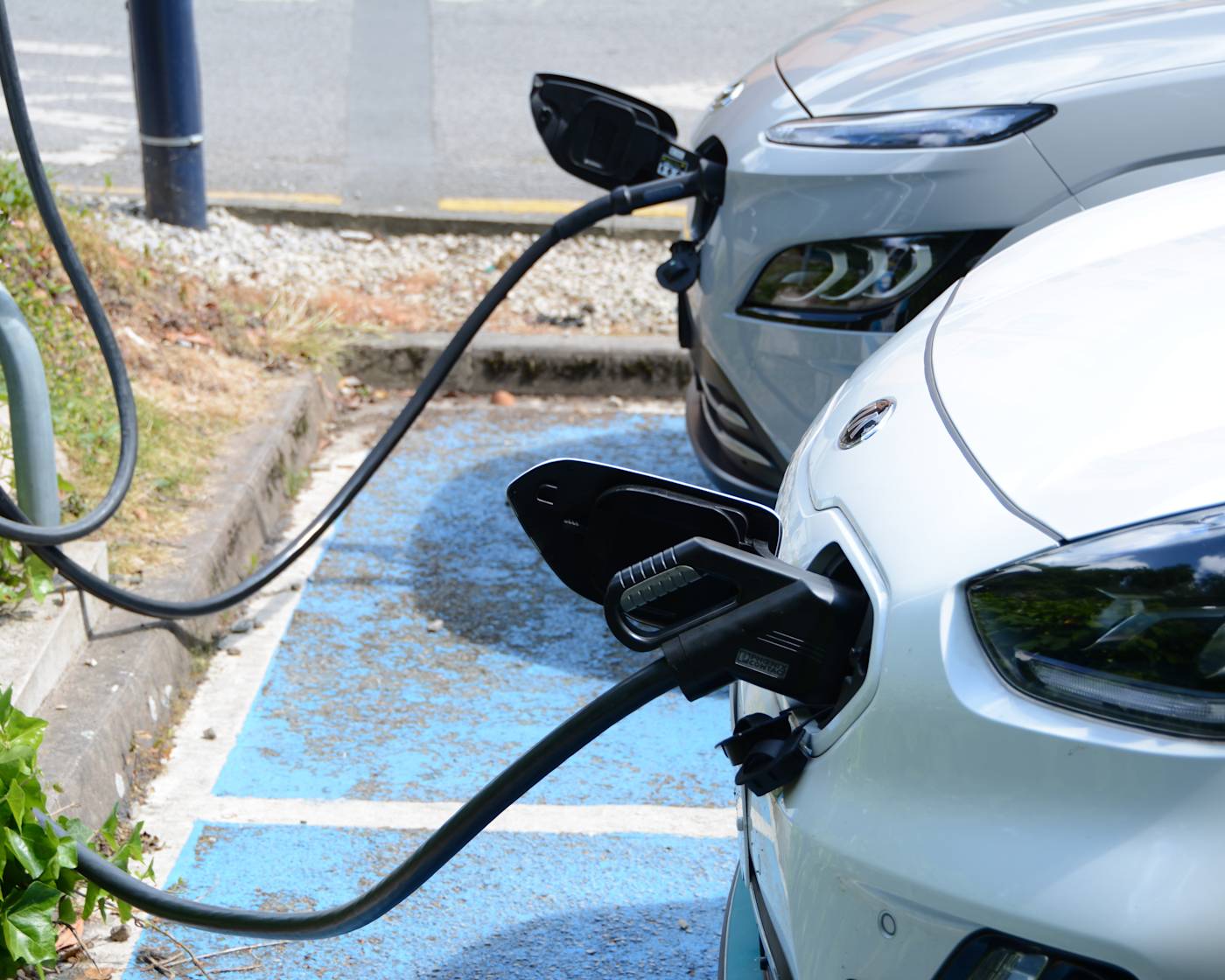
Half the fuel cost
Cost per mile is normally half that of diesel for a similar vehicle. You can work out typical costs with this home-charging calculator.
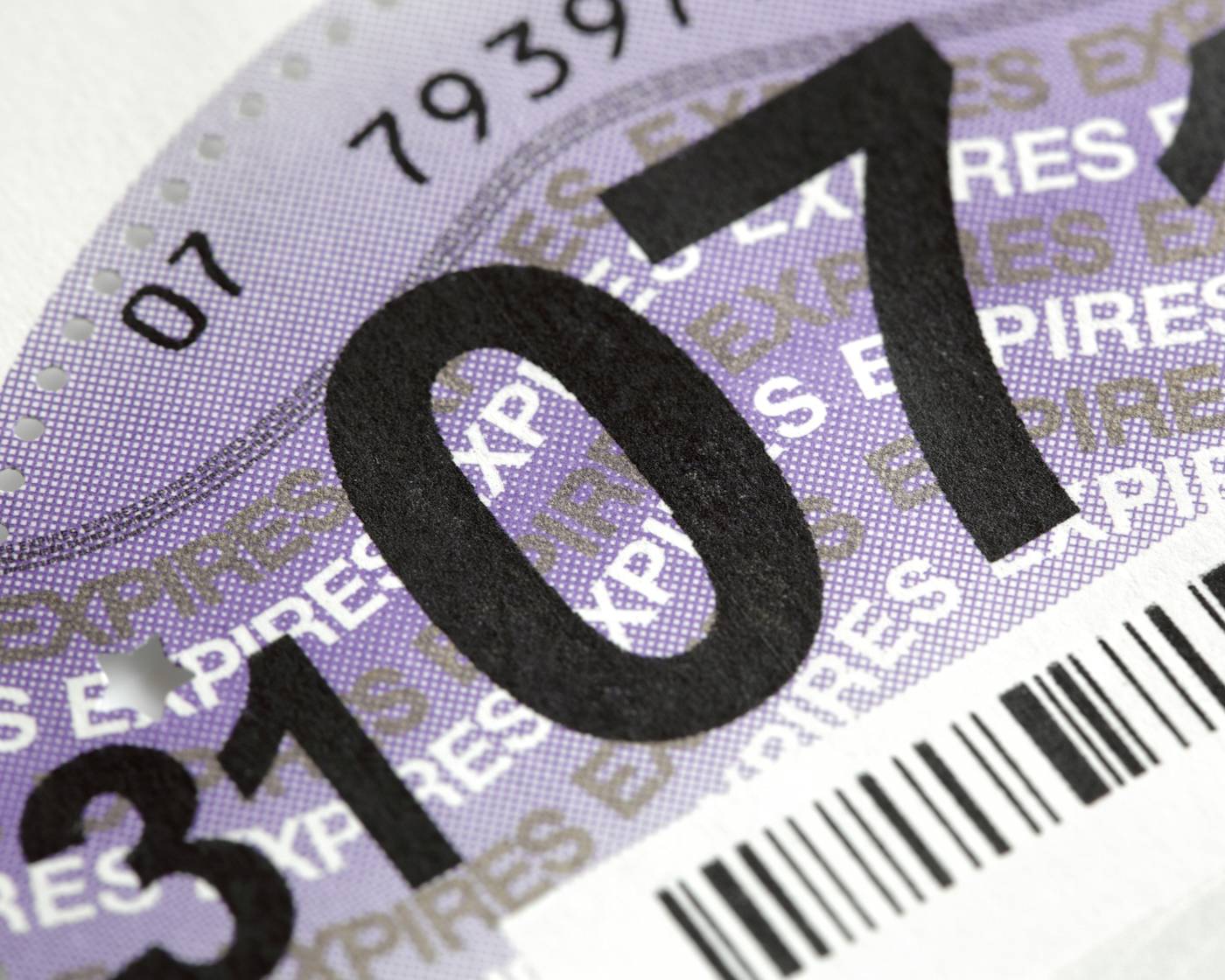
£FREE 'road tax'
Most electric cars are zero-rated for Vehicle Excise Duty (what used to be called ‘road tax’). You can check VED savings here:

Cheaper maintenance
Save up to 25% on your maintenance bills. Electric cars are more reliable than diesel and petrol, especially if you make a lot of short journeys.
Any questions?
Let's talk batteries, range and second-hand electric cars.
What kind of range can I get from an electric car?
A typical electric car, such as a Hyundai Ioniq or Kia e-Niro, can do from 150 up to around 300 miles on a single charge.
You could get even more miles by driving smoothly and efficient use of the air conditioning.
Greater Manchester has around 70 rapid charging points that can charge an EV up to 80% in 45 minutes.
Will the battery fail or fade out after a few years?
A common misunderstanding is that EV batteries degrade as quickly as they do in your phone.
They don’t.
Most manufacturers offer up to a seven-year warranty on batteries to highlight how reliable they are. And EV batteries are made up of many small cells, so if one is faulty, it can be removed and replaced. You don’t have to change out the whole battery because of a few dodgy cells.
Does cold weather really affect range?
Many people believe that batteries die far more quickly in the cold. What Car recently put the range loss on cold days at around 10-15 miles on a car with a 160-mile range. That’s less than 10%.
It's not as big a problem as you might think - unless you're planning to drive to the Arctic circle.
And did you know that you can pre-heat electric cars before you set off? You can heat the interior while charging and save the battery for the journey. Once it’s warm enough, you just need to maintain the temperature rather than use the battery to get to the level you want.
Should I buy second-hand?
EV batteries last much longer these days and the second-hand market is growing fast.
A three-year-old Hyundai Ioniq with 35,000 miles on the clock will set you back around £16,000 to buy outright. It'll have 150 miles of real-life range and costs very little to run. What's not to like?
The most important thing to check is the battery, and there are easy ways to do this. During a service, the manufacturer will always give the battery a health check so, if you’re buying a used electric car to use as PHV, make sure you see the most recent battery test report.
Don’t forget – many manufacturers are giving battery warranties of up to seven years. Make sure you also get details of the battery warranty and any battery hire agreement which may come with the car.
What if I can't charge up at home or work?
If you don't have off-street parking, charging does get trickier. But modern, public rapid chargers can charge your car in under an hour. And you don't have to fully charge it every time.
You can add 50 miles of range in 15 minutes at a rapid charger So, with a bit of thought, you can plan this into your schedule and never run out of charge. Obviously, that sounds like a hassle, but compare it to the gains - if you can save £30 on every single fuel stop with a bit of planning, isn't that worth it?
More public rapid chargers are going live across Greater Manchester all the time.
Many supermarkets now have rapid charging points - stock up and charge up at the same time.
Every motorway service has at least one rapid charging point.
To find a map of all the UK's charging points, head over to Zap-Map.
Confused about rapid v fast chargers? Check out our guide to charger types and typical charging times.
Seven years on, still going strong
"It's done almost 60,000 miles since new and is still at 100% battery health. In fact, it's only had new tyres and brake pads in seven years." - Paul Lewis, Travel Planning and Logistics Manager, Manchester Metropolitan University
Manchester Metropolitan University (MMU) have had their Nissan EN-NV200 electric van since 2014. The Facilities team originally used it to deliver and collect internal mail between the university's Crewe and Manchester campuses every day - a round trip of about 80 miles. Since the Crewe campus closed in 2018, it's making regular trips to various sites around Greater Manchester.
The van is one of MMU's 14 EVs, and Paul is pleased with its reliability and performance.
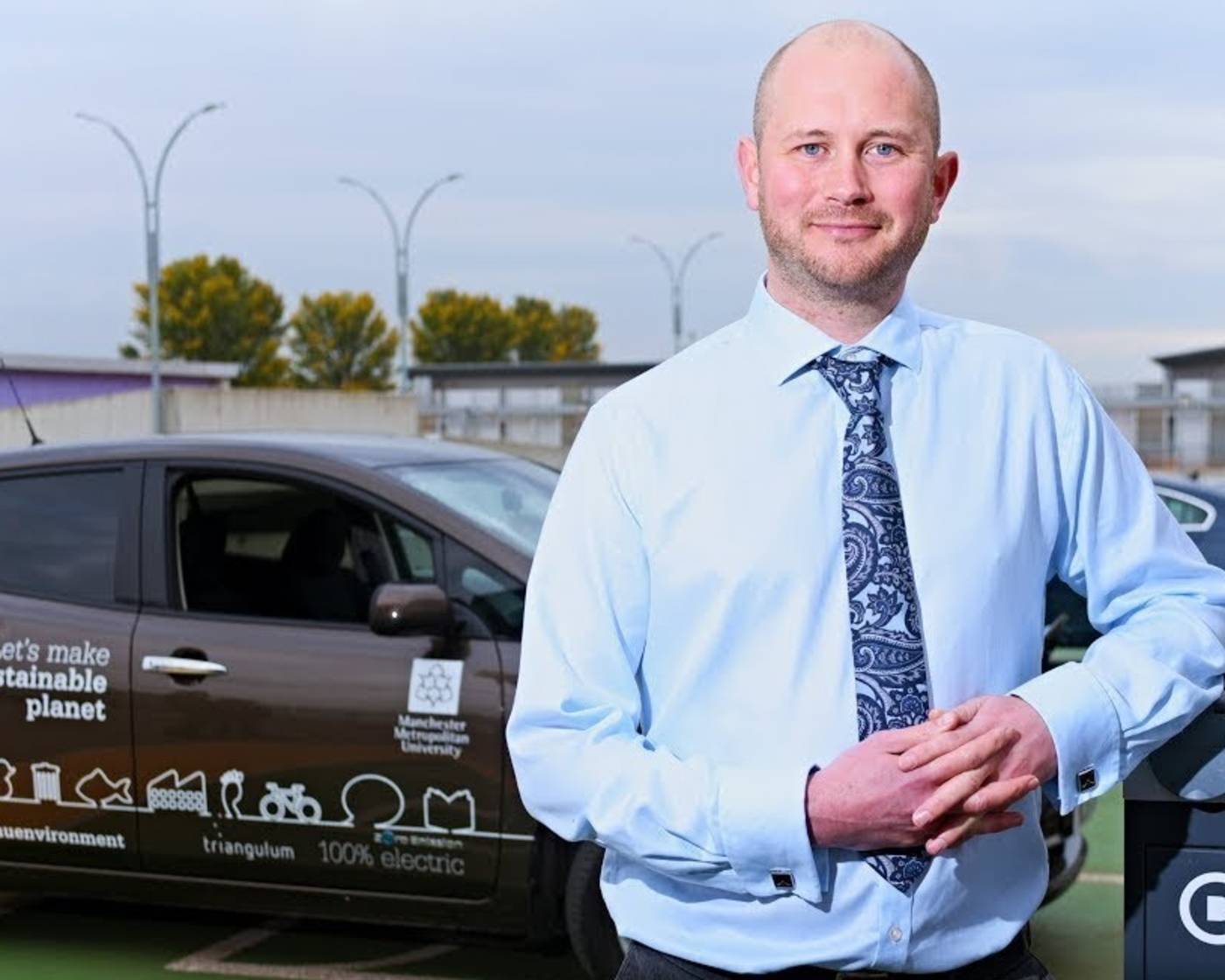
More than one way to go green
It's not just the pennies you could be saving by choosing an electric car...
Road transport accounts for about a third of carbon dioxide emissions in Greater Manchester. Ditching driving for public transport, cycling or walking makes the biggest difference to our travel carbon footprint but, if you need a car, going electric is the next best thing when it comes to tackling climate change.
Air pollution from road vehicles is also our region's biggest environmental health problem, contributing to up to 1,200 deaths a year. So choosing an EV means you're helping clean up the air we all breathe, too.
Travelling differently
Whether you need a car for work or rely on it for other trips, it’s always worth considering if you can cut down on the number of times you get behind the wheel. It’s good for your wallet, for the environment, and it can even save you time.
30% of journeys under 1km in Greater Manchester are made by car, so choosing to travel on foot or by bike to pop to the shops or meeting a friend for lunch is a good choice for shorter trips. Greater Manchester is spending more per head than any other region in the UK on bold £1.5bn plans for 1,800 miles of cycle routes over the next ten years.
And in May 2021 Mayor Andy Burnham committed to accelerating plans for an improved, London-style transport system for Greater Manchester. He’s confirmed the decision for Greater Manchester to take local control of bus services, and an ambitious vision integrating public transport to make it easier to use, more accessible and more affordable.
Find out more about the travel choices available in Greater Manchester below.
How do I get started on the road to electric?
Types of EV
Electric vehicles come in three flavours - 100% electric, plug-in hybrid and hydrogen fuel cell. Each has different benefits depending on what you need from your vehicle.
Find the right car for you
From saloons to hatchbacks and estates, there's a huge range of EV models available at prices to suit most pockets. Check out the Go Ultra Low vehicle selector to see what's on the market.
Help installing a home charging point
The government has grants available for people looking to install a charger at home. You can find out more and apply for a grant at the Office for Zero Emission Vehicles (OZEV) website.
More advice
For the latest advice and help to save money on energy, including becoming an EV driver, check out the Energy Saving Trust website.
